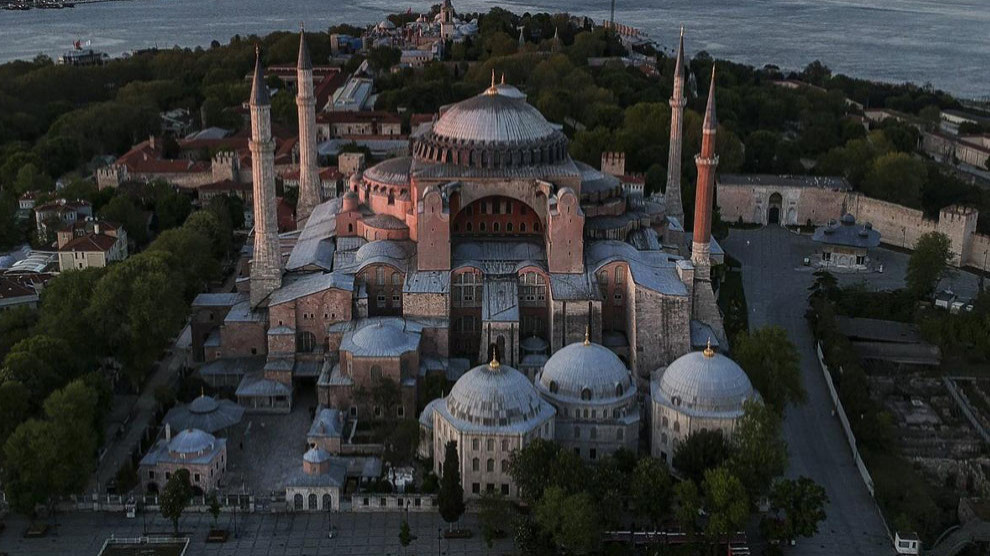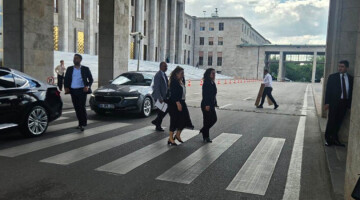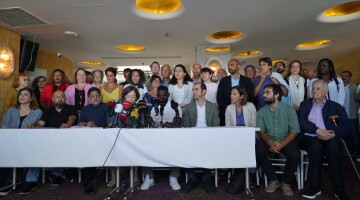Istanbul Governor Ali Yerlikaya announced the security arrangements before the first Friday prayer at Hagia Sophia. " Hagia Sophia mosque opens, we are excited," Yerlikaya said on Twitter. Bring "mask, prayer rug, patience and understanding". Why patience is needed is shown in the catalogue of measures that awaits visitors to the Friday prayer and Istanbul's residents on their way through the old town.
According to the catalogue, for guests not invited by the Turkish religious authority Diyanet, there are five open-air areas around the place of worship, which was previously used as a museum: three for men, two for women. To reach these, visitors must pass one of the eleven checkpoints where they will be searched by the police. In order to speed up the checks, visitors are asked not to bring handbags and rucksacks.
Due to the coronavirus pandemic, rows are marked in the open areas where the faithful are to pray. Fever is also measured at the checkpoints and a mouth and nose protector must be shown.
17 health stations with 736 employees will be set up on the site, a rescue helicopter and 101 ambulances will be provided.
From Thursday, all access roads to the historic peninsula will be closed, including the Galata Bridge. The tram will remain closed between Beyazit and Eminönü until Monday morning.
Hagia Sophia: The last trump card in Erdogan's pocket
The transformation of the Hagia Sophia from a museum to a mosque has caused worldwide horror and is considered to be one of the last trump cards that Turkish President Tayyip Erdogan still has in his pocket. The building was consecrated in 537 as the imperial church of the Greek Orthodox Empire of Byzantium and was considered the most important church of Christianity for 900 years. After the conquest of Constantinople (today's Istanbul) by the Ottomans in 1453, the building was converted into a Muslim church under Sultan Mehmet II. The Turkish republic founder Mustafa Kemal Atatürk carried out the conversion of the mosque into a museum, which was finally decided by the Council of Ministers in 1934. It was precisely this decision that a Turkish court has annulled, stating in its ruling that the 1453 deed of construction had dedicated the building as a mosque. A use outside of this character is legally not possible, according to the court: "The cabinet decision of 1934, which ended the use as a mosque and defined the Hagia Sophia as a museum, does not comply with the law.”
Decision despite world cultural heritage status
Hagia Sophia is located in the district of Eminönü on the European side of the metropolis of Istanbul and belongs to the UNESCO World Heritage. The UN cultural organisation had previously warned Turkey against the arbitrary transformation and called for dialogue before the decision was made; “A state should not make any changes to the outstanding universal value of a World Heritage monument. This title is linked to a series of commitments and legal obligations.”












